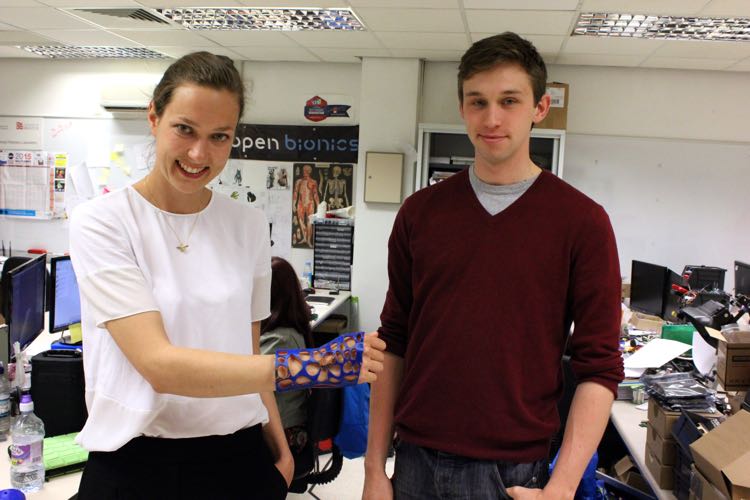Open Bionics has teamed up with a researcher at the University of Bristol to create a dual material, custom, 3D printed splint for people with broken wrists.
Abby Taylor and Open Bionics' mechanical engineer Jonathan Raines created an innovative 3D printed medical splint by combining PLA and Ninja Flex (a thermoplastic elastomer) with two extruders on a desktop 3D printer.
Abby, who is based at the University of Bristol and has a PHD from the University of South Australia, had an idea for a lighter and more convenient cast that could greatly improve life for patients.
The researcher asked Open Bionics to help her bring her idea to life by using their 3D scanning and 3D printing methods.
Open Bionics did so by 3D scanning Abby's wrist before applying a Voronoi pattern to the model and then 3D printed a custom-fitted, dual material splint.
The design combines the strength of PLA with the flexibility and softness of the filament printed on the inside. The flexible material also acts as a living hinge, meaning patients can get in and out of the splint with ease.
Abby said: “We hope to create an alternative to conventional casting that is often heavy and impractical. We want to improve the wearer's experience.”
This first print which fit comfortably, is a sign that 3D printing could enable patients to have an improved splint that's 'way more integrative' with the daily life of the patient.
Open Bionics estimated that the material costs for the splint, which prints in one part, is just £2.
The innovative startup will be supporting Abby's research into alternative medical casting for broken or injured wrists for the next year while continuing to develop their low-cost bionic hands.
Jonathan said: “It's an interesting medical project to take a look at because it's related to our field. It's exciting doing similar work, you're looking for a solution to a different problem that could still help lots of people.”

